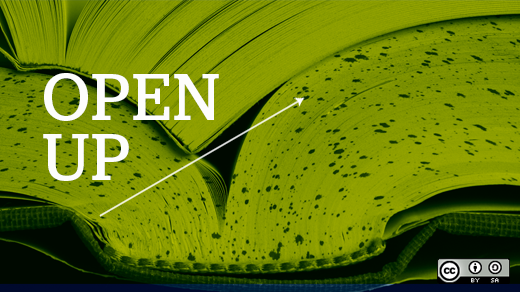Imagine you're a teacher in a school with limited resources. How can you give your students a world class education? Access to the Internet is key, but where can you look for the high-quality resources your students desperately need? How can you level the playing field for them?
The use of open educational resources is growing. Open education involves making learning materials, data, and educational opportunities available to all without the restrictions of copyright and proprietary licensing models. According to U.S. Secretary of Education John King, "Openly licensed educational resources can increase equity by providing all students, regardless of zip code, access to high-quality learning materials that have the most up-to-date and relevant content."
The current emphasis on science, technology, engineering, and mathematics has left school districts scrambling to allocate scarce funds to close that gap. Where can these schools, teachers, and students turn to find the resources that will help them take that next step in their educational journey?
I have been a member of OER Commons for several years, but only recently learned that the National Science Digital Library collection is a part of its vast resources. The National Science Digital Library is a collection of high-quality online educational resources for teaching and learning science. This is an indispensable tool given the current emphasis on science, technology, engineering, and mathematics in today's primary, secondary, and postsecondary classrooms. Most of the resources in the library adhere to the principles of open educational resources, but those that do not are restricted and may have a cost associated with them.
I've recently been teaching students about robotics, and knowing that I can share these materials with my students is empowering. The educational level of the resources ranges from preschool to adult education. There are many different resource types, including assessments, audio lectures, case studies, games, homework, lesson plans, readings, simulations, and video lectures. The materials are standards-aligned for classroom use and support the American Association for the Advancement of Science Next Generation Science Standards and Common Core Standards in Math and English Language Arts.
Becoming a member of the National Science Digital Library is free and easy. Simply supply a valid email address and password and certify that you are not a robot. I used the advanced search, specifying "robotics" in any subject area, middle school level, and available for remixing and sharing. One of the results was Robot Races, which is Common Core aligned in Mathematics. The resource is copyright University of Arizona, but is covered by a Creative Commons BY-NC-SA 3.0 license, which allows me to remix and share the web resource.
The web interface on the NSDL site allows me to preview, comment, download, print, and tag resources. Since most items are tagged, a person can easily find related resources. I found hundreds of mathematics and science resources that could be remixed and re-shared this way. All teachers, parents, and students should consider using this incredible resource and share it far and wide.







Comments are closed.